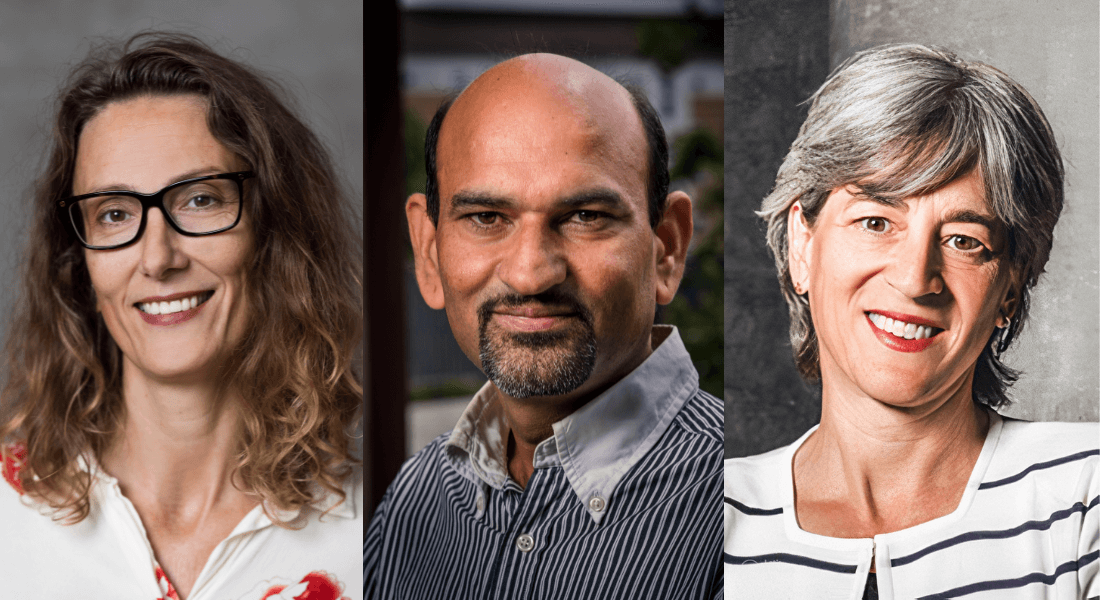Three SUND researchers receive prestigious ERC Advanced Grants
Three researchers at the Faculty of Health and Medical Sciences receive the ERC Advanced Grants of EUR 2.5 million for innovative research over the next five years.

Professor Juleen Zierath, Professor Anja Groth and Professor Chuna Choudhary, based at the Faculty of Health and Medical Sciences at the University of Copenhagen, have all been honored with the esteemed Advanced Grants from the European Research Council (ERC). Juleen Zierath also holds a position at the Karolinska Institutet, which is the institution anchoring the grant.
Each recipient is granted up to EUR 2.5 million over a period of five years, recognizing their status as well-established researchers with significant achievements over the past decade. These grants are specifically designated for researchers undertaking groundbreaking and high-risk projects over an extended period.
All grants are given to the individual researcher independent of institution. Professor Juleen Zierath’s grant is hosted at the Karolinska Institutet with the University of Copenhagen as partner institution.
Dean Bente Merete Stallknecht says:
”We are thrilled that three SUND researchers yet again in 2024 receive the ERC Advanced Grants. They are in the highest regard part of research pushing boundaries and once again establishing the University of Copenhagen at the front line of research institutions in Europe if not the world,” she says.
What is the European Research Council
The ERC plays a pivotal role in enabling researchers to explore their most innovative and ambitious ideas. In its latest round, the ERC has awarded 255 grants to research leaders across Europe, totalling nearly EUR 652 million.
As part of the EU's Horizon Europe programme, the grants are renowned for supporting high-risk, high-reward projects that could lead to major scientific breakthroughs. Beyond enriching Europe's knowledge base, the grants are expected to create more than 2,480 jobs for postdoctoral fellows, PhD students, and other staff at host institutions.
Professor Anja Groth, Novo Nordisk Foundation Center for Protein Research (CPR)
Title: Epics: Epigenetic memory by communication across chromosome scales
The ability of cells to specialize and maintain their identity through multiple cell divisions is critical for development, tissue renewal and cancer avoidance. A key frontier is therefore to understand epigenetic cell memory that governs transmission of genome function to daughter cells. Our project targets a new paradigm for the inheritance of epigenetic information, focusing on communication between the chromatin landscape and spatial genome organization to safeguard cellular identity and prevent unwanted changes linked to aging and cancer.
Current models for epigenetic inheritance lack a spatial dimension, integrating that similar chromatin types separate spatially in the nucleus and replicates in a coordinated fashion. We will develop new technology to reveal how full chromosomes – including their organization in nuclear space - are replicated and address how these mechanisms regulate cellular plasticity and cell fate.
It is a great honour to receive the ERC Advanced Grant, the most prestigious research grant in Europe. I am grateful for this important recognition that follows earlier ERC Starting and Consolidator awards to my team. I am proud that CPR receives two of these prestigious grants, which testifies to the scientific excellence that Dir. Jiri Lukas has fostered at SUND.
Professor Chuna Choudhary, Novo Nordisk Foundation Center for Protein Research (CPR)
Title: ACT-SIGNAL: Lysine Acetylation: The Scope and Function in Gene Activation
Protein modifications play a crucial role in regulating protein function, stability, and cellular localization. Among the oldest known modifications is lysine acetylation. Among these, lysine acetylation stands out as one of the earliest known modifications. Despite extensive study in epigenetic gene regulation, our comprehension of its biological functions and regulation remains incomplete.
In this project, we will utilize a combination of CRISPR-based gene editing, quantitative proteomics, and next-generation genomics to investigate the nature of acetyltransferases that regulate individual acetylation sites and their role in controlling gene transcription. Our group has a long-standing interest in studying the role of protein modifications and cellular signaling. I am very excited about the idea of this project and extremely grateful for receiving the ERC Advanced grant, my second ERC grant (following an ERC Consolidator grant in 2014). This grant reflects the scientific excellence of our institute, the Center for Protein Research (CPR), which has garnered 10 ERC grants—a notable achievement for a research center of our size in Denmark.
Professor Juleen Zierath, Novo Nordisk Foundation Center for Basic Metabolic Research
Title: CIRCAMET - Circadian Control of Systemic Metabolism in Physiology and Type 2 Diabetes
This project aims to uncover the mechanisms underlying the relationship between the circadian clock, energy sensors (diet and exercise), and metabolism, and their dysregulation in type 2 diabetes. Our overarching hypothesis is that synchronizing energetic stressors (diet and exercise) to the molecular circadian clock can maximize the health benefits on metabolism.
By combining analyses in basic circadian biology and translational metabolic research, this research program seeks new insights into preventing and treating insulin resistance in type 2 diabetes. Although one can take a reductionist approach and study the contribution of a single factor to the control of metabolism, the field is moving forward towards profiling changes across a broad swathe of factors using ‘omics’ technologies.
The Advanced Grant enables the team to address high risk/high reward questions that have clinical relevance for people living with type 2 diabetes. Results emanating from the proposed studies may inform future clinical guidelines to the management of type 2 diabetes.
